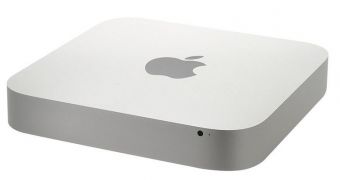Two days ago, Apple updated its popular Mac Mini computers to feature Intel's latest and greatest Sandy Bridge processors and recent benchmarks show this change had a dramatic impact on performance, in some instances doubling the speed of the systems.
Unsurprisingly, the Core i7 model is the most impressive as it manages to deliver a GeekBench score of 9573, but the Core i5 Mac Mini also hangs in there pretty well achieving 6395 points in the same test.
In comparison, the 2010 models powered by Intel Core 2 Duo processors barely manage to surpass the 4K mark, making the Core i7 Mac Mini more than twice as powerful.
When buying the new Mac Mini, Apple allows its customers to choose between three processor options, the Core i5-2415M, i52520M and the Core i7-2635QM.
Just as its name implies, this is the most powerful of the three chips available as it sports four processing cores with Hyper-Threading support, 6MB of Level 3 cache memory, a base clock speed of 2GHz and a maximum Turbo Core frequency of 2.9GHz.
In comparison, the two other CPU models that are available for the Mac Mini aren't anywhere near as fast, since they sport only two processing cores and 3MB of Level 3 cache memory, but they still can deliver some great performance when needed.
Outside of the fast Intel Sandy Bridge processors, Apple's 2011 Mac Mini computer can also be configured to feature as much as 8GB or system memory, 750GB hard drives or a 256GB SSD, as well as AMD Radeon HD discrete graphics cards.
Another important addition brought by Apple to its compact desktop system is the addition of a Thunderbolt port.
Pricing for the 2011 Mac Mini starts at $599 and the standard configuration is powered by a 2.3GHz Core i5-2415M. (via OSXDaily)

 14 DAY TRIAL //
14 DAY TRIAL // 
